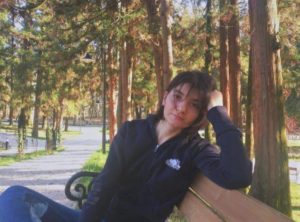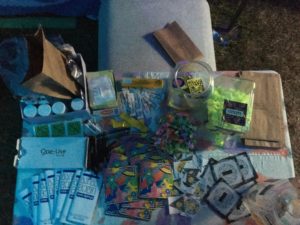Author – Irma Kakhurashvili
 In Georgia, at festivals and clubs, young women who use drugs very often experience violence, including physical and sexual abuse, which means they have unplanned pregnancies, various injuries and infections.
In Georgia, at festivals and clubs, young women who use drugs very often experience violence, including physical and sexual abuse, which means they have unplanned pregnancies, various injuries and infections.
In order to raise awareness among young women who use drugs about reproductive health, rights and the various services they can receive, the Community-based organization “Mandala” has organized the Papaya Health Club. The project helps young women and redirects them to those organizations that provide services of the different specialists, for example, a gynaecologist.
The project was supported by the ICF “AIDS East-West Foundation” (AFEW-Ukraine) within the framework of the program “Bridging the Gaps: Health and Health for Key Populations”.
“Mandala” is the organization based on the community of young drug users in Tbilisi, the capital of Georgia. The main goal is to provide harm reduction services during music festivals, where there is always a risk of intoxication, overdose and unprotected sex. At such events, the team of volunteers is always armed with informational materials on universal safety rules related to drug use. In a friendly atmosphere, in a special tent located near the festival venues, music lovers can get a quick consultation, condoms, drinking water and test drugs for free.
 The coordinator of this project is Mariam Ubilava.
The coordinator of this project is Mariam Ubilava.
– Mariam, what is the idea of “Papaya”?
– In 2018, we, representatives of the community of people who use drugs, met in a simple, informal atmosphere, opened up and discovered that we are united by similar stories, about which we often keep silence. We are ashamed to tell about them. Many of us don’t want to talk about what we use and how, about our sex life. Young women are afraid of public censure.
And then we thought that it would be great to create a confidential atmosphere in a club format where young women can gather, speak freely and share their experiences. Because when you speak openly, identify the problem, this may be the first step to solving it.
In the Club, we meet monthly, talk, listen and learn from each other, discuss pressing issues, watch films that help young women reflect on topics related to drug use, reproductive rights and services for women that they don’t get in the reality.
– What are you trying to focus on more at your meetings?
 – We are sure that a young woman should know that a condom cannot protect her from all troubles. She should remember that after taking drugs, she is more at risk of becoming a victim of violence. There is a combination of drugs leading to a “blackout,” memory loss. In this state, the young woman may be stranded in psychological and physical violence.
– We are sure that a young woman should know that a condom cannot protect her from all troubles. She should remember that after taking drugs, she is more at risk of becoming a victim of violence. There is a combination of drugs leading to a “blackout,” memory loss. In this state, the young woman may be stranded in psychological and physical violence.
In addition to the “traditional” problems that young women all over the world face (the negative consequences of unprotected sex, violence), there is also another problem in Georgia. In our country, due to cultural traditions, a man occupies a dominant role in society. Modern girls, trying to be “on equal terms” with men and prove that they are not weaker, often take the same dose as the male dose, regardless of the experience of use and physical factors. And the use of a dose too large for a woman can lead to intoxication or death.
– Which questions do young women most often ask?
– We noticed that for young women, questions about how to avoid unwanted sex, violence and stigma associated with their sexual behaviour are especially important. For example, in the Club there was a girl who experienced severe stress after one music festival – she took an unknown substance and did not remember her sexual experience after drinking alcohol, and was also afraid to get pregnant.
Also, young women often ask our trainers: why do we need to know our sexual and reproductive health rights? How do contraception and the use of psychoactive substances affect the body of women – for example, what happens if you take ecstasy during menstruation? Of course, the answers to these questions can be found on Google, but it is better to hear verified and more accurate information from a specialist. That’s why our seminars are important.
– Which more services do you provide to young women and how can they find you?
– At festivals, “Mandala” volunteers give out business cards and then communicate with young people in a closed group on Facebook. And our Facebook page can be found at https://www.facebook.com/dancewithmandala/.
Different clients often come to us to receive free consultations, but with the help of the Club, we were able to expand our work with young women, whom we can redirect to various NGOs and medical institutions. It is unfortunate that when we accompany the girls, we notice the indifference of doctors to young, but in fact very vulnerable patients. It is common for the country to treat the elderly politely, but with young people, this is not necessary as we see.
We are young, but we need information, sex education. We still do not know how to behave in clinics, how to draw up documents.
Although, I note that with the help of the project we also met doctors who are sensitive to the problems of women who use drugs. One gynaecologist still provides free services to Papaya girls, for which we are very grateful.



